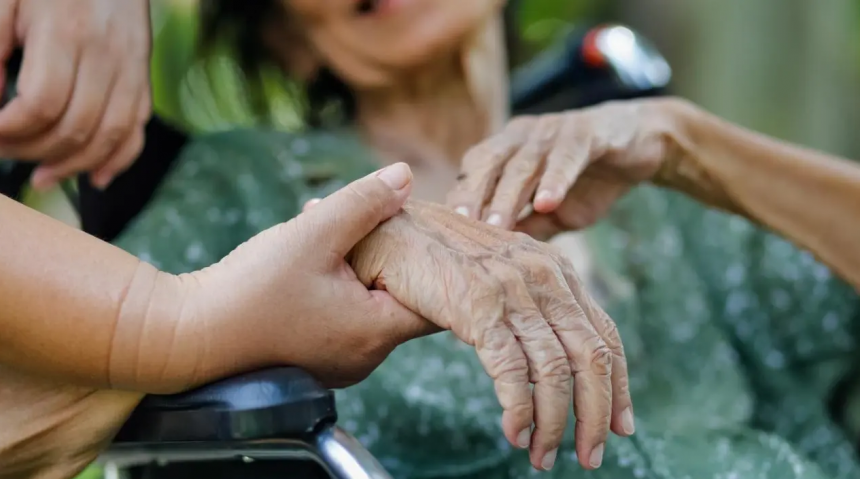The image of a mother is often one of tireless strength—caring for her children, managing the home, and offering emotional guidance through every storm. Yet, behind that enduring smile and unwavering presence, many mothers silently battle illness, physical exhaustion, and emotional fatigue. As they age or encounter health challenges, their needs shift dramatically. Unfortunately, their wellbeing is often neglected, not by choice but by the very structures and routines they helped build.
The wellbeing of an ailing mother—whether she is suffering from a chronic illness, recovering from surgery, or battling age-related decline—is a matter that extends far beyond her personal health. It reflects the values of her family, community, and the healthcare system at large. Her care is not a solitary responsibility; it is a collective duty.
An ailing mother does not just suffer physically. Illness strips away independence, alters identity, and often creates a quiet emotional struggle. For women who have spent their lives nurturing others, becoming dependent can be deeply distressing. The transition from caregiver to care recipient is a role reversal that challenges both her and her family.
Chronic diseases such as diabetes, arthritis, hypertension, osteoporosis, and heart disease disproportionately affect women in their later years. In many cultures, however, mothers hesitate to speak openly about their symptoms, downplaying their suffering to avoid being seen as a burden. As a result, early signs of illness are ignored, treatments are delayed, and emotional wellbeing is compromised.
Mental health is another often-ignored aspect of the ailing mother’s condition. Depression and anxiety are common among those dealing with prolonged illness or physical limitation, yet they remain underdiagnosed and untreated, especially in older women.
The family is often the first line of care for an ailing mother. Yet, in a fast-paced, career-driven world, caregiving is becoming increasingly complex. Adult children may live far away, juggle demanding jobs, or struggle with their own health and responsibilities. This can lead to unintentional neglect or a situation where care is given out of obligation rather than compassion.
True support goes beyond helping with medication or appointments. It involves listening without judgment, respecting dignity, and maintaining emotional closeness. Encouraging conversations about pain, fear, and hope creates a nurturing environment where healing can be more than just physical.
Importantly, family members must avoid the common pitfall of treating the ailing mother as incapable. Many older or ill women still seek autonomy in decision-making. Offering help while preserving their sense of control is key to promoting wellbeing.
Wellbeing for an ailing mother cannot be measured by physical recovery alone. It must be viewed through a holistic lens, encompassing emotional, mental, spiritual, and social aspects of health.
Illness often brings feelings of isolation and vulnerability. Encouraging regular interaction with family, friends, or support groups can reduce loneliness. Small gestures—a phone call, a shared meal, a walk outdoors—can uplift her mood and reinforce her sense of belonging.
Ailing mothers, especially those confined to bed or home, need mental stimulation to stay cognitively engaged. Reading, puzzles, music, crafts, and meaningful conversation help keep the mind active. These activities are not just distractions; they are critical to preserving mental sharpness and emotional vitality.
For many, spirituality provides comfort in times of illness. Whether it is prayer, meditation, religious rituals, or simply time for quiet reflection, supporting an ailing mother’s spiritual practices can ease anxiety and promote inner peace.
Social isolation can be as harmful as a chronic illness. Community programs, senior clubs, virtual meetups, and cultural activities designed for older women can restore a sense of community and purpose. Encouraging involvement—at her own pace—can profoundly impact recovery and overall wellbeing.
An ailing mother deserves healthcare that is empathetic, accessible, and patient-centered. Unfortunately, many systems still fall short.
For older or chronically ill mothers, frequent doctor visits, medication, and therapy sessions are part of daily life. Yet many face barriers such as high medical costs, poor transportation, or inadequate insurance coverage. Policymakers must prioritize healthcare affordability, especially for elderly and female patients.
Healthcare systems need to offer specialized geriatric and palliative care that addresses the unique needs of aging women. This includes pain management, physical therapy, mental health support, and caregiver guidance. Training more doctors and nurses in geriatric care is essential for meeting the growing demand.
Home-based care is a lifeline for many ailing mothers who cannot travel frequently. Governments and private providers should invest in quality home care services—nurses, physiotherapists, aides—who can provide dignified, consistent support in familiar surroundings.
Mental health must be integrated into all aspects of care for ailing mothers. Screening for depression, anxiety, and cognitive decline should be routine, not optional. Emotional wellbeing is not secondary—it is central to recovery.
Ailing mothers are not just patients; they are the living repositories of family stories, wisdom, and history. Yet, in many societies, older women are treated as expendable. Their suffering is dismissed as “part of aging,” and their care becomes an afterthought.
We must challenge these narratives. Aging and illness are not just biological realities; they are human experiences deserving of empathy and respect. Societies that honor their elders, particularly women, are healthier, more humane, and more connected across generations.
Often overlooked is the wellbeing of those who care for ailing mothers—spouses, children, or hired caregivers. Caregiver burnout is real, especially when emotional support and respite are lacking. Supporting caregivers with education, community programs, and mental health resources ensures sustainable and compassionate care for mothers.
Encouraging shared responsibilities among siblings or extended family can prevent one person from becoming overwhelmed. Community volunteers and NGOs can also step in to assist families in need.
Digital health tools—such as telemedicine, wearable health monitors, and medication reminder apps—can significantly aid in managing chronic conditions. For families living far from an ailing mother, technology offers a way to stay connected and involved.
However, care must be taken to ensure these technologies are user-friendly and accessible to older users. Training sessions, in local languages and simple formats, can empower mothers to use these tools confidently.
The wellbeing of an ailing mother is not a burden—it is a reflection of our values. It asks us to slow down, to listen more, to be present. It reminds us that caregiving is not only about tending to illness but also about honoring a life that has given so much.
When we care for our mothers—physically, emotionally, and socially—we don’t just help them heal. We reconnect with the very essence of human compassion. We uphold the bond that sustains families and communities.
As individuals, families, and as a society, let us commit to nurturing the hearts and health of our ailing mothers—not with pity, but with dignity, love, and unwavering support. Because behind every strong child, every balanced family, and every thriving community, there is—more often than not—a mother who gave everything she had.
(The author is a freelance columnist and can be mailed at: [email protected])








